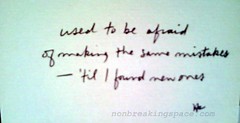This week I have been engaged in numerous discussions of the organ donation system in the UK, mostly spurred by my appearance on Channel 4’s 4Thought.tv strand which asked, “Should Organ Donation Be Compulsory”.
Over the week, the show has featured a variety of views both for and against presumed consent and organ donation as a whole. One of these was Derek House, a Jehovah’s Witness who believes that all organ donation is fundamentally wrong.
While his views raised ire among the transplant community, it struck me that Mr House isn’t the man we need to be targeting. His religious beliefs preclude him from supporting organ donation: we’re not going to change that.
If we want to see the number of organ donors in this country increase, we need to tackle the vast disparity between the 75% of people who say they would be willing to donate their organs1 and the 26% who have signed the organ donor register. Those people don’t need convincing of the merits, they just need to be drawn out of their apathy.
Focusing our energies on a battle we’re already winning seems like a better use of resources than fighting one we will inevitably lose.
The same goes for any kind of battle you may be facing as an artist or entrepreneur: look at the fights you face and work out which ones are worth your energy.
Picking your battles is not the same as taking the path of least resistance. It’s about using your focus and energies on strategies and tactics that will make a difference, not banging your head against a brick wall.
- the oft-quoted figure of 90% is, infact, the people who support the idea of organ donation; 15% of people support the idea, but say they wouldn’t donate their organs [↩]




